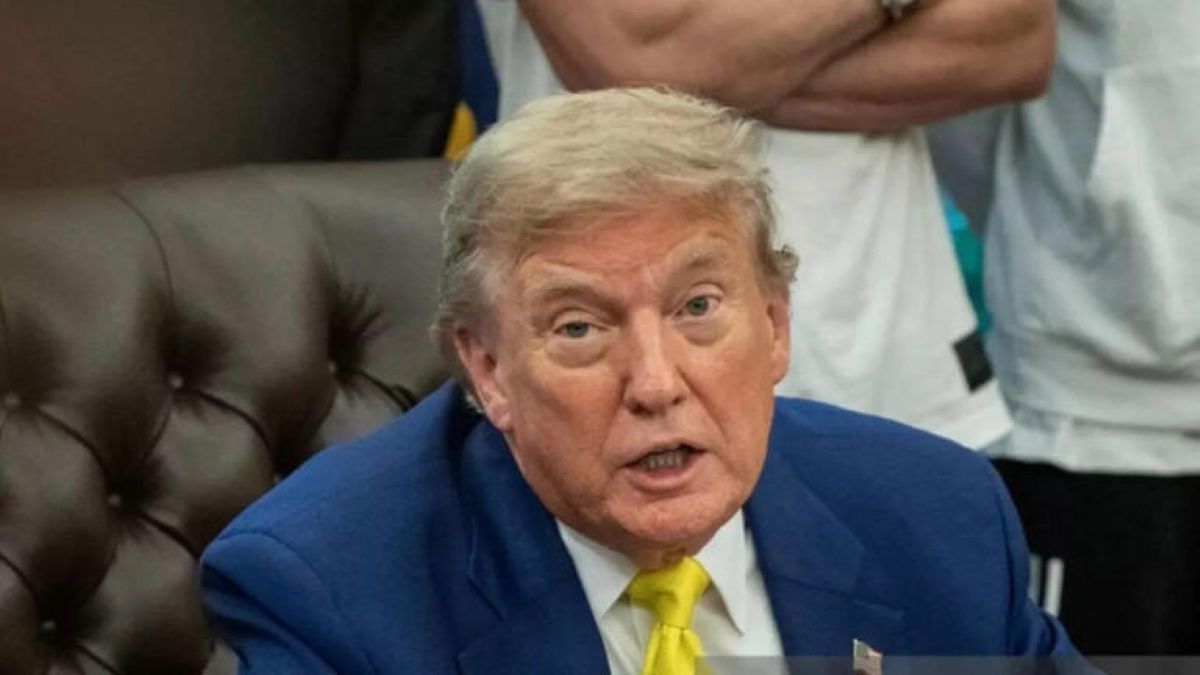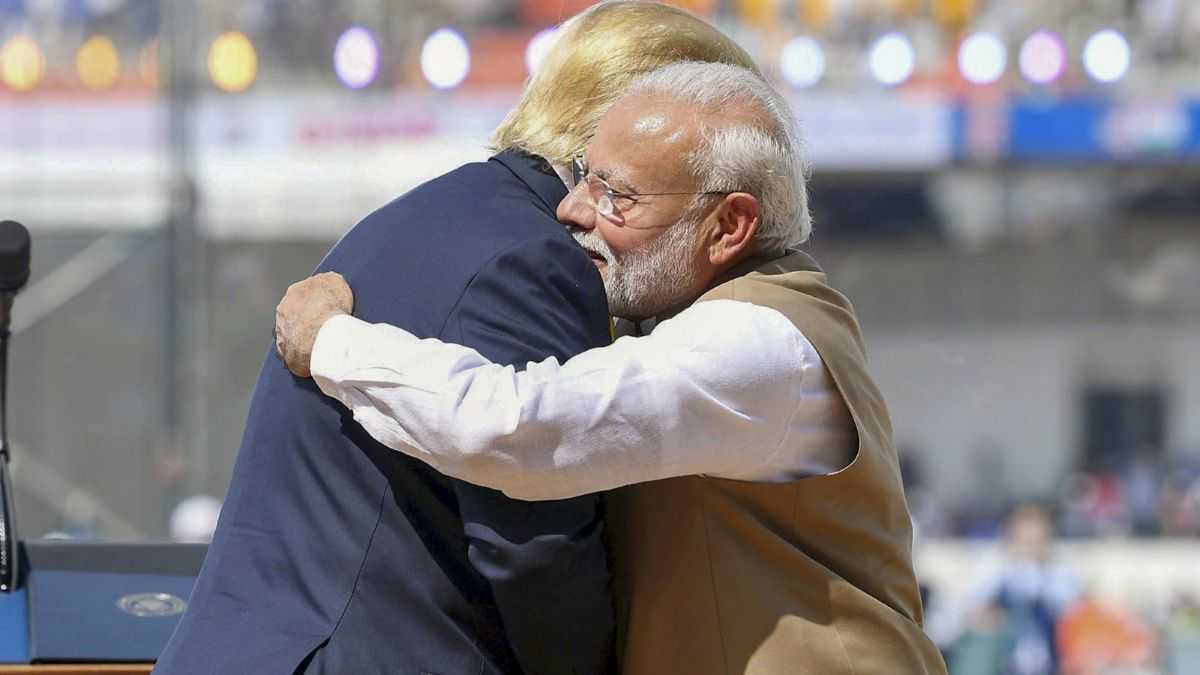
June 2025: In a dramatic turn that has jolted U.S. politics and shaken international stability, former President Donald Trump is poised to approve a military strike on Iran, potentially within hours — and without prior approval from Congress.
According to MSN News, Trump’s decision circumvents traditional legislative checks, raising serious constitutional concerns and prompting immediate reaction from leaders across Washington.
Late-Night Decision Fuels Unrest on Capitol Hill
Sources close to the former president indicate that the decision to greenlight the strike came late in the evening after a high-level security briefing. Trump reportedly ordered the Pentagon to prepare for action, citing recent escalations by Iran, including threats to U.S. allies and critical oil infrastructure.
Lawmakers were left blindsided. Congressional leaders were neither briefed nor consulted, breaking with the long-standing protocol of seeking bipartisan input on major military decisions. This sudden move has sent shockwaves across Capitol Hill, where many are now questioning the legality and wisdom of unilateral military engagement.
Read Also: PM Modi Reveals Why He Declined Donald Trump’s Dinner Invite
Source: Associated Press
Iran’s Provocations at the Center of the Decision
Iran has been intensifying its military presence in the Strait of Hormuz and has ramped up uranium enrichment at the controversial Fordow Fuel Enrichment Plant. Intelligence officials have cited multiple acts of aggression, including drone surveillance of U.S. Navy vessels and alleged coordination with Hezbollah in border attacks on Israel.
These actions are seen as crossing a “red line” by Trump and his security advisors. Supporters argue that this is a measured response to a growing threat that could spiral into wider regional conflict if left unchecked.
War Powers Resolution Under Threat
The 1973 War Powers Resolution, designed to limit the president’s ability to initiate hostilities without Congressional consent, is once again under scrutiny. The resolution allows for military action only in cases of national emergency or immediate threat — neither of which, critics argue, apply here.
Legal experts warn that bypassing Congress sets a dangerous precedent. Harvard Law School’s Laurence Tribe said in a public statement,
“This move is a direct challenge to the Constitution’s checks and balances. It opens the door to executive overreach.”
A Deepening Divide in U.S. Politics
The situation has intensified the already polarized political environment in Washington. Democrats have voiced strong opposition, labeling Trump’s decision as reckless and unconstitutional. Senate Majority Leader Chuck Schumer warned that “unauthorized use of force may provoke a full-scale war in the Middle East.”
Even within the GOP, reactions are mixed. While MAGA-aligned conservatives back Trump’s hardline stance on Iran, several moderate Republicans have urged caution. Senator Rand Paul tweeted, “War is not a decision for one man. Our Constitution requires Congressional approval.”
A Replay of the Soleimani Strike Controversy?
This isn’t the first time Donald Trump has come under fire for unilateral military action. In January 2020, he ordered the assassination of Iranian General Qasem Soleimani without Congressional approval, a move that nearly led to war.
At the time, Trump defended the action by claiming an “imminent threat,” but internal documents later suggested the strike was intended more as a strategic deterrent. The parallels with today’s situation are unmistakable, reigniting the debate over the limits of presidential power.
Global Reactions and Diplomatic Warnings
The international community is on high alert. The European Union, United Nations, and NATO members have called for immediate restraint from all parties involved. There are fears that a U.S. strike could destabilize not just Iran, but the entire Middle East.
China and Russia have also entered the conversation, with both nations calling for diplomatic resolution rather than military escalation. Analysts warn that if the U.S. acts alone, it could alienate allies and embolden adversaries.
What Could the Strike Look Like?
Military analysts believe the most likely targets would be Iran’s nuclear sites, particularly those involved in uranium enrichment. High-value strategic locations like Natanz and Fordow are reportedly being monitored by U.S. satellites and drone reconnaissance.
The Pentagon has remained tight-lipped about operational details but has confirmed that forces are “positioned to respond at a moment’s notice.” If the strike proceeds, it could involve B-2 bombers, carrier strike groups, and cyber operations targeting Iran’s defense systems.
Social Media Frenzy and Public Backlash
As news of the strike approval spread, social media platforms were flooded with reactions. The hashtag #TrumpIranStrike quickly trended on X (formerly Twitter), with users expressing alarm, support, and confusion.
Public opinion is deeply divided. Some Americans view Trump’s decision as a show of strength against a hostile regime, while others fear it could lead the country into another prolonged conflict similar to Iraq or Afghanistan.
Potential Fallout: What Comes Next?
If the strike occurs, Iran is expected to retaliate — possibly by targeting U.S. bases in Iraq, Syria, or even the Gulf States. There’s also concern that Iranian-backed militias could launch asymmetric attacks on American diplomats or commercial shipping in the region.
Domestically, Trump may face legal challenges or even Congressional censure for bypassing legislative procedures. The House is already exploring the introduction of emergency resolutions aimed at limiting the president’s military powers.
Experts Warn of Risky Precedent
Political scientists and military historians caution that this decision could weaken democratic oversight for years to come. By acting without Congress, Trump may normalize a practice that future presidents — regardless of party — could use to sidestep public accountability.
“It’s not just about Trump,” said Georgetown University professor Rosa Brooks. “This is about whether America is still governed by democratic principles or sliding toward a dangerous autocracy masked as patriotism.”
Conclusion: A Nation at a Crossroads
With the global community watching closely, the U.S. faces a moment of truth. Will Trump carry through with the strike? Will Congress assert its authority? Will Iran respond with escalation or restraint?
The next few hours — and the choices made within them — could determine not just the future of U.S.-Iran relations, but the very framework of American democracy.




